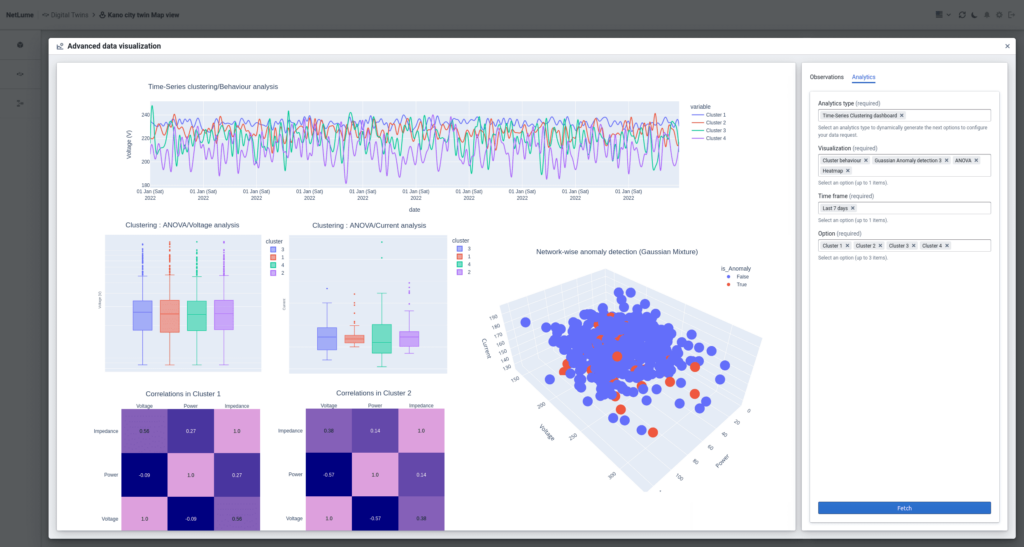
The intersection of energy and the Internet of Things (IoT) is shaping the future of the energy sector, promising a more sustainable and efficient approach to energy generation, distribution, and consumption. IoT technology is revolutionizing the way we manage and optimize energy resources, and NetLume, as a pioneering IoT leader, is at the forefront of this transformation. In this comprehensive article, we explore the partnership between energy and IoT, highlighting the significance of this collaboration and the vital role that NetLume plays in shaping a more sustainable energy future.
Energy and IoT: A Transformative Partnership
The energy sector is experiencing a profound shift, driven by the integration of IoT technology. This partnership brings numerous advantages that contribute to a more efficient and sustainable energy ecosystem. Let’s delve into some of the key benefits:
1. Process Monitoring and Resource Optimization
IoT technology enables automated monitoring and control of power plants and energy distribution systems. Sensors and IoT devices provide real-time data on processes, ensuring efficiency, reducing errors, and optimizing resource utilization. This results in significant energy savings and minimizes waste.
2. Advanced Analytics
The integration of IoT devices allows for the collection of vast amounts of data. Advanced analytics applied to this data help power companies make informed decisions. This includes accurate forecasting of energy consumption patterns, which in turn, aids in better demand and supply management, reducing unnecessary energy consumption and waste.
3. New Opportunities
IoT opens doors to new business opportunities and innovative concepts in the energy sector. Smart electric meters, home automation, intelligent buildings, and street lighting are just a few examples. These applications improve energy efficiency and promote sustainable practices.
4. Intelligent Grid
IoT facilitates the creation of a smart grid, which optimizes power flow, reduces energy consumption, and supports the integration of renewable energy sources. This automated system helps in real-time monitoring, faster data restoration, and better energy management.
5. Cost-Savings and Data Management
IoT in the energy sector enhances cost-effective energy management by providing real-time data handling and analytical decision-making. This leads to efficient resource utilization, reduces energy wastage, and promotes sustainability.
6. Sustainability
IoT technology promotes sustainability by enabling smart solutions such as automated maintenance and reporting, optimization of smart grids, renewable energy generation, and real-time carbon consumption measurement. This contributes to reducing the environmental impact of the energy sector.
IoT Applications in the Energy Sector
IoT has diverse applications in the energy sector, both in residential and commercial settings:
1. Residential Energy
IoT technology allows homeowners to reduce energy consumption and costs. For example, lighting systems can automatically adjust based on occupancy, reducing unnecessary energy use.
2. Commercial Energy
IoT enables businesses to monitor and reduce energy consumption effectively. This optimization benefits both small and large corporations by improving power efficiency and functionality.
3. Reliability
IoT ecosystems offer reliable solutions for energy management. They detect and alert operators to potential issues before they become critical, ensuring the safety of the workforce and the facility.
4. Automated Process
Automation using IoT technology reduces the need for human intervention, enhances production quality, and increases on-site safety. Sensors and webcams monitor machinery performance, raising alerts before incidents occur.
5. Disaster Prevention
IoT solutions minimize the risk of accidents by providing early warnings through sensors. This proactive approach ensures the safety of workers and the uninterrupted operation of power plants.
6. Increased Efficiency
IoT processes boost productivity in power plants, manage waste generation, and reduce greenhouse gas emissions. Smart grids enhance energy consumption management in factories and industries.
7. Smart Energy Meters
Smart energy meters interact remotely with utility providers, recording and sending consumption data in real-time. This promotes better energy management and reduces energy costs.
8. Zero Net Energy Buildings
IoT contributes to the development of zero net energy buildings that rely solely on renewable energy sources such as solar and wind. This reduces dependence on non-renewable resources and minimizes environmental impact.
9. Smart Decision Making
IoT empowers consumers to make informed decisions about energy consumption, while authorities gain effective control over energy usage.
Challenges Faced by IoT in the Energy Industry
Despite the tremendous benefits, IoT in the energy sector faces challenges, with security concerns being a top priority. Outdated systems and connectivity issues can compromise the effectiveness of IoT solutions.
Conclusion: Shaping a Sustainable Energy Future
The partnership between energy and IoT holds immense promise for a more sustainable and efficient energy future. NetLume, as a leader in IoT technology, plays a pivotal role in driving this transformation. With its comprehensive IoT platform, NetLume offers solutions for rapid asset modeling, real-time monitoring, and the deployment of AI models. By leveraging low-code and no-code approaches, NetLume empowers businesses to design their domain models with ease.
As we move forward, IoT’s applications in the energy sector will continue to evolve, bringing us closer to a world where energy is managed intelligently, efficiently, and sustainably. The growth of IoT in the energy market is indicative of the industry’s commitment to embracing this transformative technology. The future of energy is here, and it’s connected with the Internet of Things, led by innovators like NetLume.
